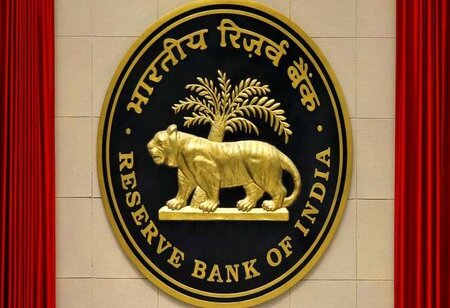RBI to Purchase Bonds worth Rs 25000 crore under G-SAP 1.0
 The Reserve Bank of India (RBI) will purchase bonds worths ₹25,000 on Thursday as part of its security acquisition programme (G-SAP 1.0), under which it will buy bonds worth 1 lakh crore from the secondary market in the three months to June 30 (Q1 of the current financial year).
The Reserve Bank of India (RBI) will purchase bonds worths ₹25,000 on Thursday as part of its security acquisition programme (G-SAP 1.0), under which it will buy bonds worth 1 lakh crore from the secondary market in the three months to June 30 (Q1 of the current financial year).
Why is RBI buying bonds ₹1 lakh crore ?
The central bank’s ₹1 lakh crore bond-buying plan, which was announced last week, aims to control long-term interest rates amid a massive government borrowing programme.
What is government securities acquisition programme or G-SAP 1.0 ?
RBI last Wednesday announced that it is putting in place a secondary market government securities acquisition programme or G-SAP 1.0 for the financial year 2021-22 to enable an 'orderly evolution of the yield curve'. The central bank asserted that the measure will ensure favourable financial conditions for the recovery to gain traction.
Under G-SAP 1.0, which will be for 2021-22, RBI will commit "upfront to a specific amount of open market purchases of government securities with a view to enabling a stable and orderly evolution of the yield curve amidst comfortable liquidity conditions," Governor Shaktikanta Das said while announcing the monetary policy.
How to participate?
Eligible participants should submit their bids in electronic format on the Reserve Bank of India Core Banking Solution (E-Kuber) system between 10am and 11am on Thursday. The central bank clarified that only if there is a system failure, physical bids would be accepted and such bids should be submitted to Financial Markets Operations Department in the prescribed form obtainable from RBI website before 11am.
The result of the auctions will be announced on the same day and successful participants should ensure availability of securities in their SGL account by 12 noon on April 16, RBI said in a statement.
How G-SAP is different from Open Market Operations (OMOs)?
During the post policy conference, Shaktikanta Das told reporters that G-SAP is different from the regular Open Market Operations (OMOs) that RBI conducts.
"It has a distinct character, in the sense that for the first time we are giving out a particular quantum of bond purchase in the secondary market. Within this particular quarter, we will be suitably depending on the evolving situation and will be announcing auctions from time to time," he was quoted as saying by news agency PTI.
Explaining the programme, deputy governor Michael Patra said, “What this will do is that irrespective of what the RBI wants, we will give you ₹1 lakh crore is what we are telling the market. It is not going to be timed to market situations, market movements, and many more. So, there is an upfront assurance. It is very much like what central banks are doing across the world into buying assets of various types. We are sticking to the highest quality assets, and why we are doing so, because, the G-sec is the benchmark for the entire market spectrum.”
He added that by influencing the G-sec interest rates, congenial financial conditions can be ensured across the economy and that is essential for recovery to stabilise and take root and become stronger.
“In an OMO type of situation, the market is guessing. How much will RBI put up there? When will it do the auction? Will it reject? Here is an explicit commitment that so much I will ensure that liquidity is available,” Patra said.




